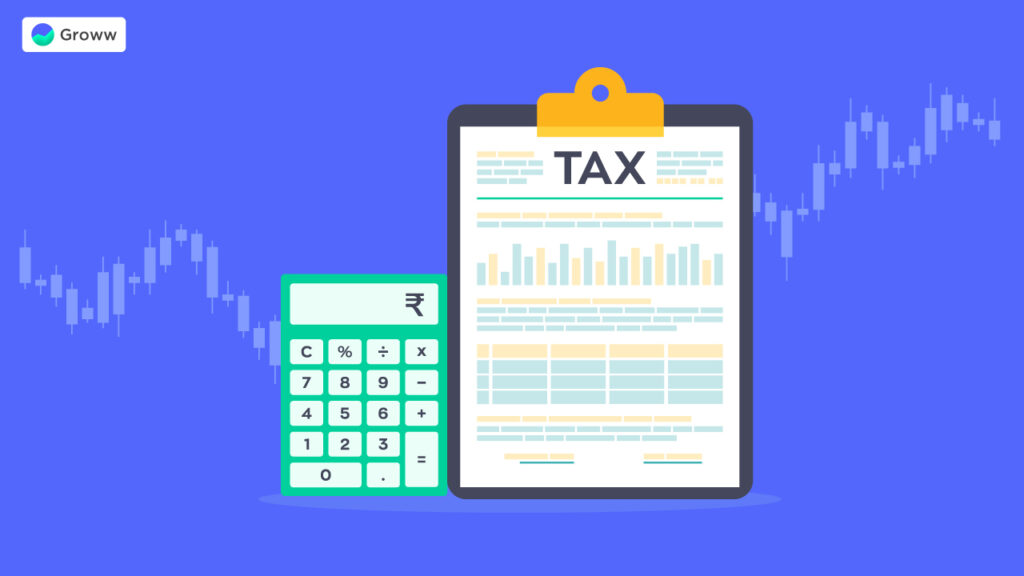Tax rules for stock market investors and traders in India, governed by the Income Tax Act, 1961, are critical for managing gains from equity shares and derivatives. With India’s stock market capitalization at ₹450 lakh crore in 2024, per IBEF, understanding these rules ensures compliance. How are stock market earnings taxed, and what are the compliance steps? Let’s break it down.
Taxation of Capital Gains: Slabs and Exemptions
Understanding capital gains taxation is crucial for investors.
- Short-Term Capital Gains (STCG): If you sell listed shares within one year, gains are taxed at 15% (plus cess and surcharge, if applicable).
- Long-Term Capital Gains (LTCG): If you sell after one year, gains over ₹1 lakh are taxed at 10% without indexation.
However, investing in unlisted shares or equity mutual funds comes with slightly different rules. Moreover, under certain exemptions (like Section 54F), capital gains can be reinvested in residential property to save tax. Gains below ₹1 lakh annually are exempt under LTCG rules.
For example, if you bought ₹5 lakh worth of shares and made ₹1.5 lakh in profit after a year, only ₹50,000 would be taxed at 10%.
Business Income for Traders:
Active traders, especially intraday traders, often fall under a different tax category—business income.
- Intraday trading is considered speculative business income and taxed as per the applicable income tax slab.
- Futures and Options (F&O) trading is treated as non-speculative business income, also taxed as per slab rates.
Traders must maintain detailed records, including contract notes and trading statements, to justify claims during assessment. Also, traders may need to maintain proper books of accounts and file under ITR-3 or ITR-4 if opting for presumptive taxation under Section 44AD.
Securities Transaction Tax (STT):
While discussing stock market tax rules in India, one cannot ignore Securities Transaction Tax (STT).
STT is automatically deducted by brokers and applies to each buy or sell order on recognised stock exchanges. Here’s a quick breakdown:
- Equity delivery: 0.1% on both buy and sell.
- Intraday equity: 0.025% on sell-side only.
- Equity F&O: 0.01% on sell of options, 0.05% on sell of exercised options.
Though STT is not deductible as a separate tax, it affects your overall profit calculation.
Compliance and Key Rules:
- Reporting: Declare capital gains in ITR-2 (investors) or ITR-3 (traders) under “Capital Gains” or “Business Income” schedules, per Section 139. Use Schedule VDA for crypto-related trades.
- Deductions: Traders can claim expenses (e.g., brokerage, internet) under business income, per ET Wealth. Investors get no deductions except STT for LTCG, per Section 112A.
- Documentation: Maintain contract notes, bank statements, and Form 26AS/AIS for TDS verification, per IndiaFilings.
- Filing Deadline: File ITR by July 31, 2025 (FY 2024-25). Audits are mandatory for traders with turnover above ₹10 crore, per Section 44AB. Non-compliance risks penalties up to ₹10,000 under Section 234F.
Conclusion:
Understanding stock market tax rules in India helps you invest or trade wisely and stay compliant. Whether you’re an investor eyeing long-term growth or a full-time trader, staying updated with the latest tax norms can help you make smarter financial decisions. Ready to manage your trading taxes? Explore more tax insights now!
– Ketaki Dandekar (Team Arthology)
Read more about Tax Rules for Stock Market Investors and Traders here – https://cleartax.in/income-from-selling-shares
